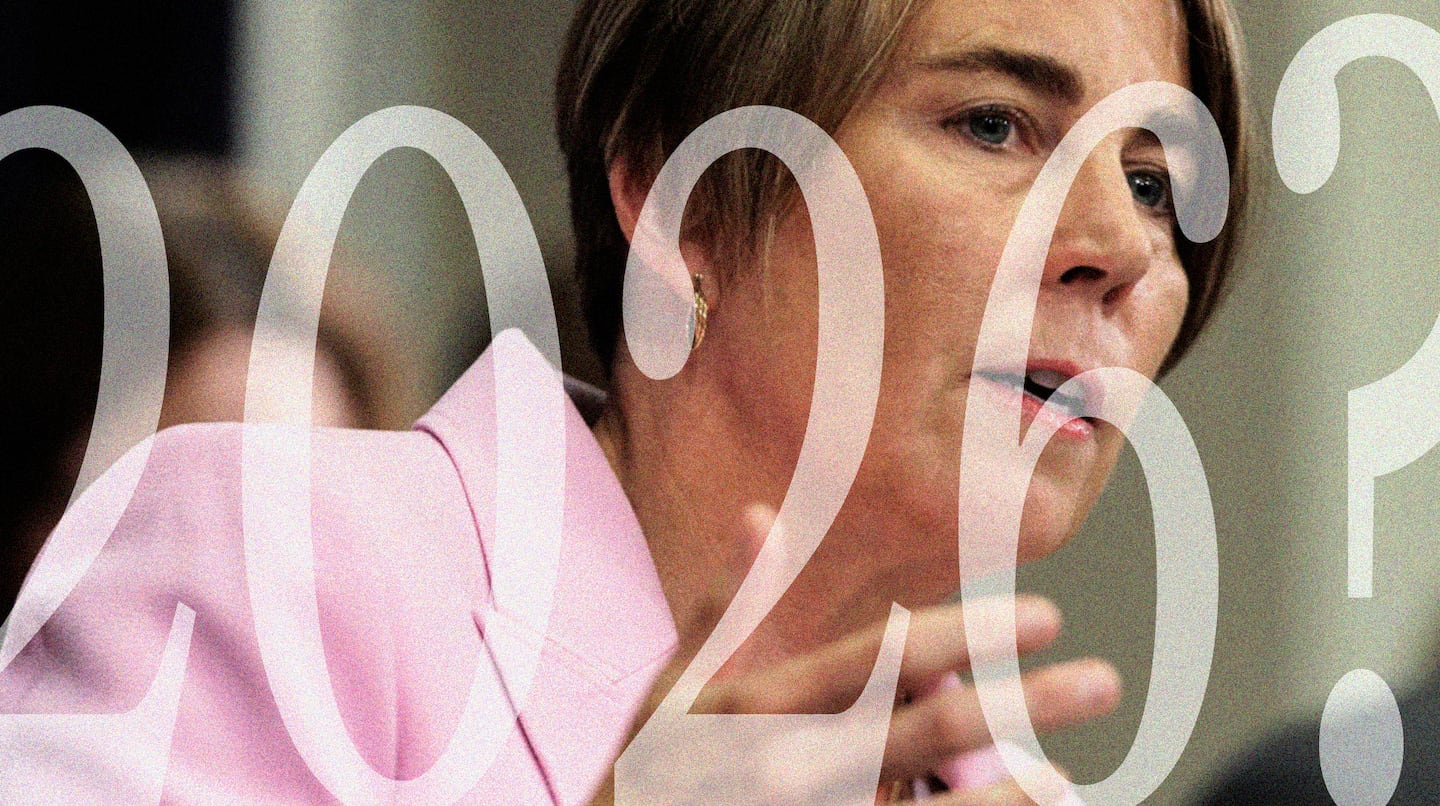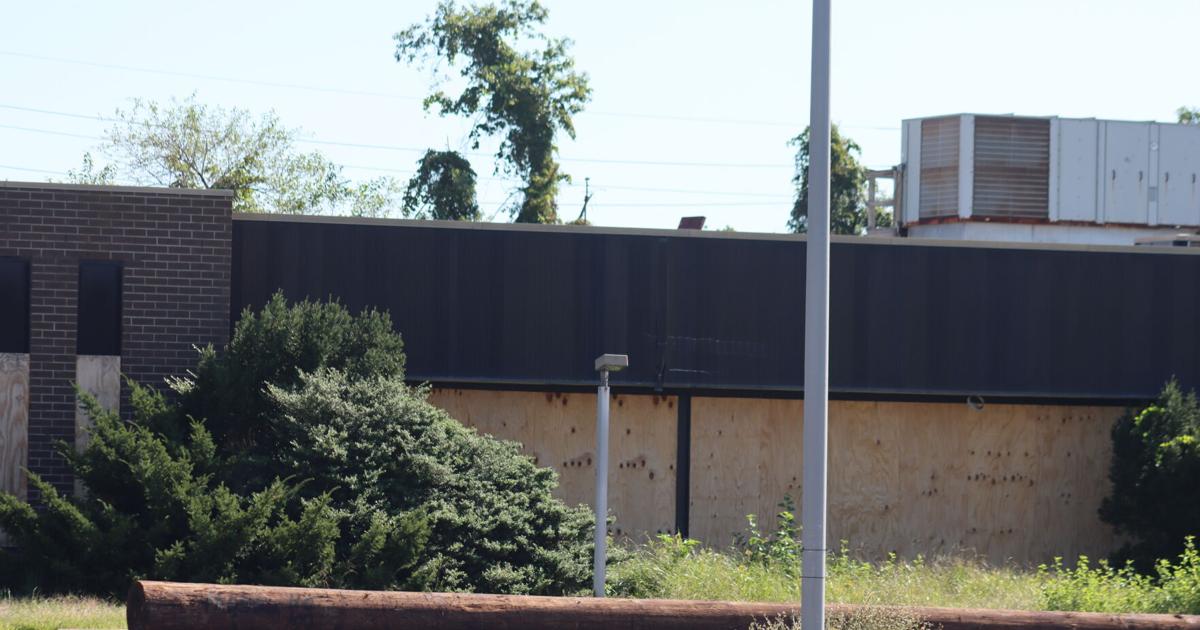
By Renée Loth
Massachusetts is a state with its political engines in permanent campaign mode, so it’s never too early to think about the next election. And it seems like Governor Maura Healey will have a lot of company on her reelection ballot line in 2026.
At least two moderate Republicans from former governor Charlie Baker’s administration plan to run, and a possible independent challenge is looming from developer-philanthropist Alan Leventhal, a reliable donor to liberal Democratic causes. As in 2022, Healey may also see a Democratic party challenge from her left.
If I’m Healey, I’m saying come on in, the water’s fine. A crowded field puts her right where she likes to be: in the middle.
Since her move from the attorney general’s office almost four years ago, Healey has governed resolutely from the center, with a $1 billion tax-cut package in her first year as governor to nicely balance her left-leaning posture on social issues. A few months later she responded to a budget shortfall by slashing $375 million from the state budget mid-fiscal year, much of it from MassHealth. She adopted a tough-love approach to a costly surge of undocumented immigrants, pushing to overturn a unique Massachusetts “right to shelter” law for homeless families, and ratcheting down time limits on emergency shelter stays for migrant families.
Her fiscally conservative bona fides thus established, Healey has been free to return to her roots as a crusading litigator – the progressive attorney general who joined or filed nearly 100 lawsuits against President Trump in his first term. She’s no brave firebrand like Boston Mayor Michelle Wu, and governor is a different role from attorney general, but Healey knows that Trump is the state’s favorite bête noir (just ask Josh Kraft), and her broadsides against his ICE raids and vaccine reversals help reassure squeamish progressives unhappy with her flinty fiscal side.
Healey has seen some lukewarm reviews in polls of late, and the Baker brand of Republican still resonates with Massachusetts voters. But with two Republicans splitting the vote on her right and a Democratic-leaning independent in the mix, this former college basketball star can be comfortable straddling the center line.
By Carine Hajjar
Without much of a record to run on, Governor Maura Healey sure is lucky that President Trump is in the White House. But for her Republican challengers, the impact of national politics on the gubernatorial race poses a unique challenge. Yes, Healey’s poor record on business, transparency, energy costs, and immigration offers plenty of fodder for political talking points. But what do you do when voters aren’t really listening?
For her lack of transparency alone, Healey should not be a viable political candidate. During the height of the migrant crisis, the state obscured the horrific abuse that had become commonplace in taxpayer funded shelters, while misleading the public on the rigor of background checks. This state-sanctioned humanitarian disaster cost taxpayers more than $1 billion in unchecked spending by an administration that pursued “improper and unlawful no-bid emergency procurements for food and transportation services,” according to a state audit.
Now consider the state’s status as one of the most expensive places to do business with some of the slowest private-sector job growth in the country. Not to mention the fact that Massachusetts is among the most expensive places to live, with an ongoing housing crisis and chronically high energy rates. When you list all of Healey’s weaknesses, it’s hard to understand her 56 percent approval rating.
Incumbents like Healey always have an advantage, but going into an election with that kind of record leaves her Republican challengers with plenty to work with. Candidate Mike Kennealy, a housing and economic development secretary under former governor Charlie Baker, told me in an interview in April that state leadership needs to be able to do the bare minimum: “A government we can believe in would be one that is fiscally responsible, that is accountable and transparent, that could deliver services efficiently, that can manage a crisis. And on all those metrics, Beacon Hill has fallen short.”
Candidate Brian Shortsleeve — a Marine veteran, venture capitalist, and Baker’s former MBTA chief — started his August interview with me by emphasizing the state’s small business climate. “Now we’re no longer a growth state. You don’t have to go too far back in time to remember a time when Massachusetts was the fastest growing state in the whole northeast,” he told me. “If we don’t get our private sector growing again … we’re going to continue to stagnate in a world that’s growing and scaling.”
Both Kennealy and Shortsleeve told me they’d subject their administrations to the public records law. Kennealy was also adamant that the Legislature should get the audit voters asked for by an overwhelming margin. “Governor Healey has given no support to the auditor in that matter,” he told me in April.
But Healey’s Republican challengers aren’t just sticking to local issues because there are plenty of them. They’re also ducking the political realities of running with an R next to their names in a blue state during the Trump era. Sixty percent of Massachusetts residents disapprove of the president.
When I asked the Republican candidates if a Trump White House posed a political challenge for their campaigns — which it obviously does — they both deflected with roughly the same talking point: Their focus, they said, is on the people of Massachusetts, not the White House.
And sure, sticking to state problems should be the bare minimum in a gubernatorial race. But thanks to the dynamics between the deep blue state and a hostile White House, Healey seems comfortably insulated from political attacks from the right.
Especially when those attacks are coming from two little-known Republicans.
For all the good ideas Kennealy and Shortsleeve offer, there’s little they can do about the political dynamics that are holding them back.
By Joan Vennochi
Can a candidate who is not Maura Healey or the Republican nominee carve out a lane that leads to the governor’s office?
Alan Leventhal, a former United States ambassador to Denmark and longtime real estate developer, is said to be mulling that question. It’s not my job to discourage people from participating in the democratic process, but with Healey hogging the middle lane, it’s hard to see how a candidate like Leventhal, with no built-in political base and little name recognition beyond certain elite business and political circles, can find a path around her.
Now, if you are Leventhal, 73, you are probably thinking, “I have a lifetime of business and philanthropic experience, not to mention the wisdom that comes with age. I want to make Massachusetts more competitive for businesses, create more jobs, and control housing costs by spurring development. I also want to make education in Massachusetts great again. And by the way, I don’t need the mainstream media to communicate my message. I am rich enough to do what it takes to tell Massachusetts voters who I am and why I should be governor.”
But as a veteran political consultant who wants to remain nameless told me: “If he [Leventhal] called me tomorrow and said ‘I have $1 million for you,’ I would say, ‘It takes more than money and a desire to do good things to win an election.’ ”
This consultant also said he would tell Leventhal to call Josh Kraft, the Boston mayoral candidate and nonprofit leader, who just learned that lesson the hard way. Although running for mayor is different from running for governor, some basic principles apply. A candidate must be able to say exactly why the incumbent they seek to replace shouldn’t be returned to office – and why they are the best alternative. A candidate can’t just say we need more housing. They need to show how they would make that happen.
If Leventhal is better than Kraft at pressing his case, that would be a good start.
When President Joe Biden nominated Leventhal to be his ambassador to Denmark, a Globe story described him as a major Boston-area donor for Biden’s presidential campaign, so his Democratic credentials are solid. That would presumably protect him against the strong anti-Trump sentiment in the state. According to a recent poll conducted by MassINC Polling Group, 60 percent of those surveyed strongly or somewhat strongly disapproved of Trump’s performance.
Healey has tapped into that anti-Trump sentiment on select issues, such as vaccine policy under Robert F. Kennedy Jr., Trump’s secretary of health and human services, while staking out middle ground on issues like immigration enforcement.
Still, Massachusetts voters like Healey, but don’t necessarily love her. That same MassINC poll showed that slightly over half of those surveyed approved of her performance. Voters are frustrated with the Beacon Hill status quo, as shown by their overwhelming endorsement last year of a ballot question that would allow the state auditor to audit the Legislature.
The issues of affordability and the overall business climate might also offer an opportunity for a non-Trumpian candidate. But again, Leventhal would have to find a way to get voters to focus on those problems, and convince them he is the one to fix them.
In 2010, state treasurer Tim Cahill tried a version of that. Cahill left the Democratic Party and launched an independent campaign against Governor Deval Patrick and Republican challenger Charlie Baker. “I believe that the way to turn Massachusetts around is to lower taxes and create a business-friendly state,” Cahill said at his announcement.
In the end, Patrick won re-election with nearly 48 percent of the vote. Baker got 41,5 percent. Cahill eked out 7.95 percent of the vote – enough to earn some of the blame for Baker’s loss.
Politics is the art of the possible. Still, it would take a great deal of voter frustration and unhappiness with the Democratic brand for Leventhal or any third-party candidate to find a path beyond spoiler to victory.
This column first appeared in Right, Left, and Center, Globe Opinion’s free weekly newsletter about local and national politics. If you’d like to receive it in your inbox every Wednesday, sign uphere.



